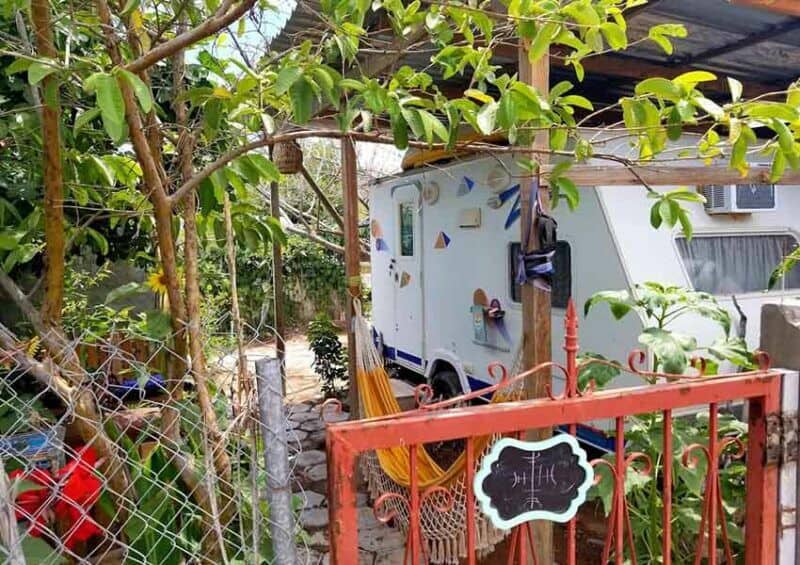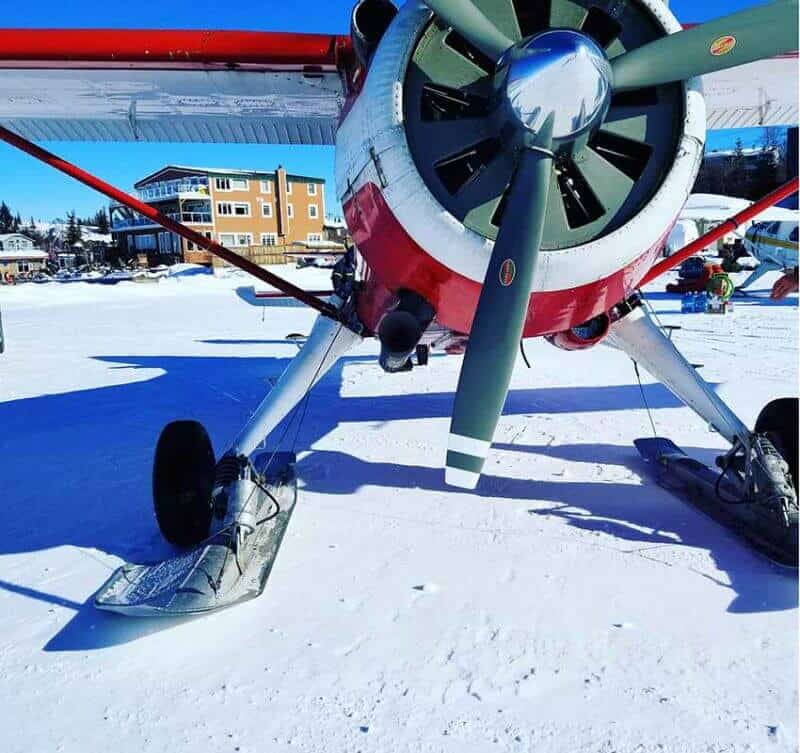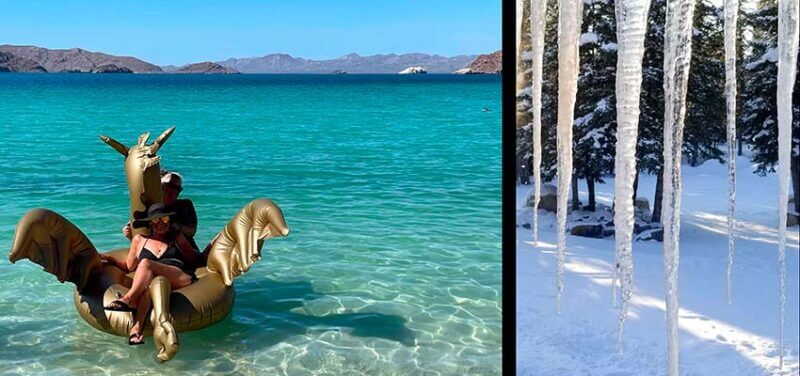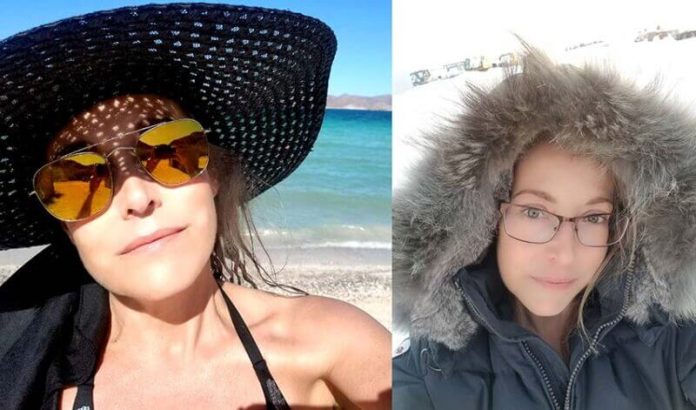When I think of Canadians traveling seasonally to Mexico, I think of well-off people looking for comfortable temperatures year-round, but Jessica Collins turns this stereotype on its head.
And the nomadic side of my personality is envious.
Collins spends about half a year in Mulegé, Baja California Sur, tending an unusual Airbnb business and the other half working waaaaay up north as a cook for miners and ice truckers.
Essentially, she admits, she is an “overgrown adventurous college student,” one who has led this kind of life for about 20 years.
I initially interviewed Collins because I was interested in her business of creating and renting reworked old trailers as hotel space.

About three years or so ago she, a sister and her Mexican brother-in-law realized that they could buy broken-down trailers and RVs for only a few hundred dollars, as their owners don’t want to haul them back north. They are fixed up and rented through AirBnB under the name Trailercito Caracol.
The Collins sisters’ connection with Baja came from traveling the area for many years in their teens and 20s. Her sister met and married a Mexican man from Mulegé, and his family’s land became the Collins family’s base in Mexico.
The trailer idea has only been active for a few years, but they have two that are rentable with a third in progress. Making them habitable usually includes replacing floors, painting and thorough cleaning and fumigation to make sure to be rid of the area’s infamous scorpions and other critters.
Although an important part of their lifestyle and a unique way to experience Baja, the hotel income doesn’t yet support the family. For economic and personal reasons, Jessica still travels north each year to work, but not necessarily in the summer when the weather is better in Canada.
Instead, her migrations depend on gigs she gets during the year, which include cooking in mining camps and for ice truckers. The latter, in particular, means working near the Arctic Circle during the coldest months of the year.
At the time of the interview, Collins was working at a mining exploration camp near the Alaskan border. Like a good Canadian, she was dressed in a flannel shirt and heavy boots. Even though it is summer, it was only 4 C and rainy there.

The money she makes, and that her sister makes working in Canadian summer resorts, goes toward developing the land in Mulegé and their general living expenses in Mexico. For Collins, that can mean that her Baja months are not when normal snowbirds are “in season” but rather the hot summer months. Her yearly migrations can put her in temperatures anywhere between -40 C and 40C, but she wouldn’t have it any other way.
COVID-19 has put a strain on their trailer rental business, although not in the sense of people wanting to rent. In fact, the isolation of the trailers and natural beauty are a draw for those looking to get away from the insanity.
But providing proper shower and bathroom facilities means a separate outdoor structure that is shared among the trailers, and that sharing is currently disallowed by municipal authorities. Currently, they can rent only one trailer, but they hope this will change soon. Collins says “… there is nothing like showering at night under a million stars.”
Outdoor bathrooms and cooking areas are common in Mulegé. It is very often too hot to cook indoors and never too cold to bathe outdoors. Also, sewer systems in the area have a tendency to back up, and this setup keeps the smell out of the house.
The use of old trailers, including one they’ve refurbished from the 1960s, is a brilliant idea not only because it appeals to the same adventure-minded people that come to off-the-beaten-track Mulegé but because it reuses something that would otherwise sit in a junkyard.
The time that the two sisters spend up north is more than just money to supplement their life in Baja. They take advantage of that time to promote Baja and understand exactly what their target market is and wants. One aspect is understanding how important the internet is even to such a small operation, even though access for them there can be sketchy.

Although tourism in Mulegé began to grow starting with the 1976 construction of Mexican Highway 1, making it 12 hours from the nearest border with the United States, it has not developed like Los Cabos or even Loreto has.
Nevertheless, Collins is very optimistic about the trailer idea going forward. She believes that in the post-COVID world, “people are going to want the experience over the flash of resorts.”
And when they are ready, so will the Collins family be.
Leigh Thelmadatter arrived in Mexico 18 years ago and fell in love with the land and the culture in particular its handcrafts and art. She is the author of Mexican Cartonería: Paper, Paste and Fiesta (Schiffer 2019). Her culture column appears regularly on Mexico News Daily.
